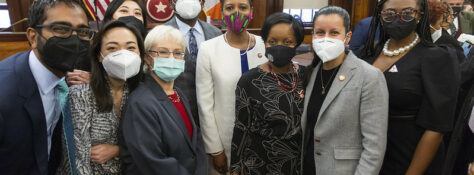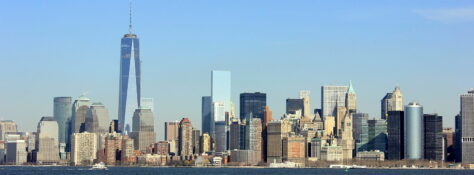Late last week City Council Speaker Adrienne Adams announced her appointees for committee chairs. The most important chairs to keep an eye on for sustainability, and building a greener city, are those for environmental protection, transportation, parks, sanitation, and resiliency. Housing, health, and finance are also important chairs that can help facilitate environmental legislation.
Learn MoreAs New York City begins strategizing for the new year, our new administration and Council Members have the opportunity to start making transformative investments in our environmental infrastructure and resiliency. NYLCV’s newest Policy Agenda lists what issues should be made top priority in the transportation, energy, public health, conservation, and environmental justice sectors, and highlights the legislative opportunities that will get us there. We hope to build upon our progress made last year and continue making bold policy decisions for the good of our community. Below are some of the main points made in this year’s Policy Agenda.
Learn MoreNews
The New York City Council last week passed legislation to restrict food-service establishments from giving out single-use plastic straws, except upon request. This will cut the city’s plastic output that reaches our landfills and oceans.
Learn MoreNews
We're excited to release latest NYC Council Environmental Scorecard, in which Council Members are evaluated based on their support of environmental issues
Learn MoreNews
We are excited to release our 2021 NYC Policy Agenda. In 2019, New York City committed to a bold Green
Learn MoreNews
The New York City Council Committee on Resiliency and Waterfronts held an oversight hearing to coincide with the eighth anniversary of Superstorm Sandy. NYLCV testified that while the steps taken by the City have been critical for affected communities, New York needs to establish its own resiliency plan for future emergencies rather than rely on federal emergency funding.
Learn MoreNews
A combination of the words fat and iceberg, fatbergs are large masses of common household trash items that do not belong in the water works including cleaning wipes, grease, and various personal hygiene products. Improper disposal means clogged pipes, sewage backups, damaged equipment at wastewater treatment plants.
Learn MoreNews
In his 2020 State of the City address, New York City Mayor Bill de Blasio emphasized climate change as a top priority for his administration.
Learn More




